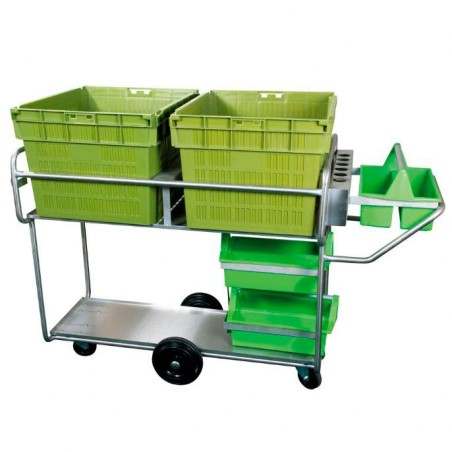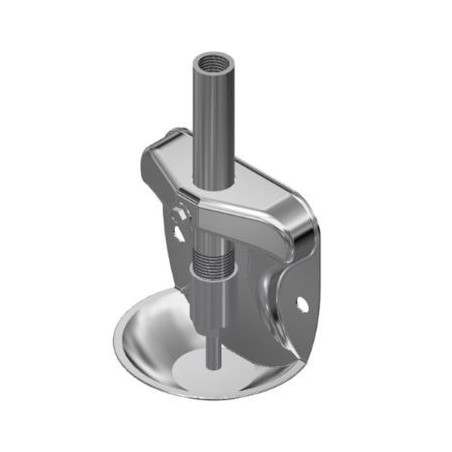Corn-soybean meal is the primary source of energy and protein in swine diets. A diet of corn-soybean generally contains non-starch polysaccharides, including arabinoxylans, xylans, phytate, glucans and cellulose, which cannot be digested in the small intestine of pigs due to a lack of the digestive enzymes needed to degrade the nutrients. The addition of multi-carbohydrase, an enzyme mixture consisting of xylanase, β-glucanase, and cellulose, has been suggested as a potentially efficient approach to improve non-starch polysaccharide availability. The digested carbohydrates can also be good sources of fermentable nutrients for gut microflora in pigs. The gastrointestinal tract of pigs is colonized with a highly diverse microbiota having a considerable impact on an animal’s immune response, gut physiology, and development. Therefore, the objective of this study was to evaluate the effects of multi-carbohydrase in lactation diets on gut microbiota composition of lactating sows and their litters. For that aim, a total of 12 lactating sows (Landrace x Yorkshire x Duroc; 218.37 ± 5.5 kg of average BW; 2.0 of average parity) were randomly allotted to 12 pens. On day 114 of gestation, sows were randomly assigned to 2 dietary treatments, a diet based on corn-soybean meal, and corn-soybean meal supplemented with 0.01% multigrain carbohydrases. Sow and piglet fecal samples were collected on days 7 and 28 after farrowing from three randomly selected sows in each group and three of their randomly selected piglets.
Based on the results from 16S rRNA gene amplicon sequencing, multi-carbohydrase led to changes in species diversity and altered the microbial compositions in lactating sows and their piglets. Specifically, the multi-carbohydrase treatment induced an increase in the proportions of Lactobacillus in piglets. Clostridium and Spirochaetaceae showed a significantly reduced proportion in multi-carbohydrase -treated sows at day 28.

These results support the beneficial effects of dietary carbohydrases and their link with improved production due to better host fitness outcomes and gut microbiota composition.
Lee JJ, Song M, Kyoung H, Park KI, Ryu S, Kim Y, Shin M. Effects of Dietary Carbohydrases on Fecal Microbiome Composition of Lactating Sows and Their Piglets. Journal of Microbiology and Biotechnology. 2022; 32(6): 1-7. https://doi.org/10.4014/jmb.2203.03026





